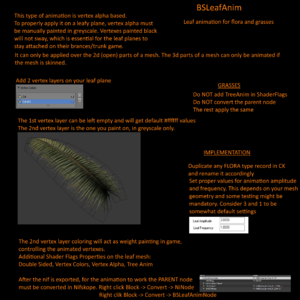Difference between revisions of "Arcane University:3D Art"
m (→General Workflow) |
m (→General Workflow) |
||
| Line 3: | Line 3: | ||
== General Workflow == | == General Workflow == | ||
| − | + | With the [[Arcane University:Concept Art|Concept Art]] imported into the modelling software, [[Arcane University:Blockout|blockout]] modeling starts. For the '''high-polywork flow''', the 3D artist [[Arcane University:Sculpting|sculpts]] a high-poly mesh. They then [[Arcane University:Baking|bake]] the high-poly details into the normal map of a [https://www.youtube.com/watch?v=X8kQiccJetw retopologized] low-poly version of the mesh, and [[Arcane University:Texturing|add textures]] to this low-poly model. After the asset is [[Arcane University:Mesh Export to NIF|exported to NIF format]], it is given its physical properties such as [[Arcane University:Mesh Collisions|collision and physics]]. It may then be rigged/skinned to bones and [[Arcane University:Animation|animated]], if necessary. | |
#[[Arcane University:Blockout|Blockout]] | #[[Arcane University:Blockout|Blockout]] | ||
Revision as of 07:35, 13 May 2021
A 3D artist can create shapes based on Concept Art, writing and discussions as well as what is required by the Animation and Implementation teams. For example, if a certain object must have moving parts, detailed information on this is critical for the 3D artist to do their work effectively. For the Gamebryo Engine and the context of Skyrim, a 3D artist should take into account standard polycounts for their 3D models.
Contents
General Workflow
With the Concept Art imported into the modelling software, blockout modeling starts. For the high-polywork flow, the 3D artist sculpts a high-poly mesh. They then bake the high-poly details into the normal map of a retopologized low-poly version of the mesh, and add textures to this low-poly model. After the asset is exported to NIF format, it is given its physical properties such as collision and physics. It may then be rigged/skinned to bones and animated, if necessary.
- Blockout
- Sculpting
- Retopology
- UV Unwrapping
- Baking
- Texturing
- Mesh Export to NIF
- Adding Mesh Collisions
- Animation
Basics - The Data Formats Nif (Meshes) and DDS (Textures)
- To review the specifics of the NIF data format used for meshes, check Nif Data Format.
- To review the specifics of the DDS data format used for textures, check DDS Data Format.
Asset-specific Tutorials
Weapons
- Nifskope Weapons Setup
- File:Tutorial skyrim bows from 3ds.pdf (Bows with 3ds and Nifskope)
Tilesets and Architecture
- File:Bernstein Mike ModularKits3d.pdf
- Skyrim’s Modular Approach to Level Design by Joel Burgess
- Fallout 4's Modular Level Design (lecture video) by Joel Burgess
- How to Create Tilesets (lecture video) by Zix
- Snapping Tutorial (video) by Zix
Armor
Misc Items
Statics
Trees
Harvestables
LOD Objects
- Guideline for LOD model creation by Grumpycat
Tool-specific Guidelines and Links
Resource Tools
- BSAopt to unpack Skyrim data files
Modeling Tools (most include sculpting and rigging features)
Sculpting Tools
Rigging Tools/Animation
- Havoc for Skyrim
- Outfit Studio for Skyrim
- Rigging with Blender 2.79
- Rigging Jewelry with Blender 2.79
Texturing Tools
- Gimp for Skyrim
- Photoshop for Skyrim
- Paint.Net for Skyrim
- Bodypaint in Creation Kit
- Material Editor for Skyrim
